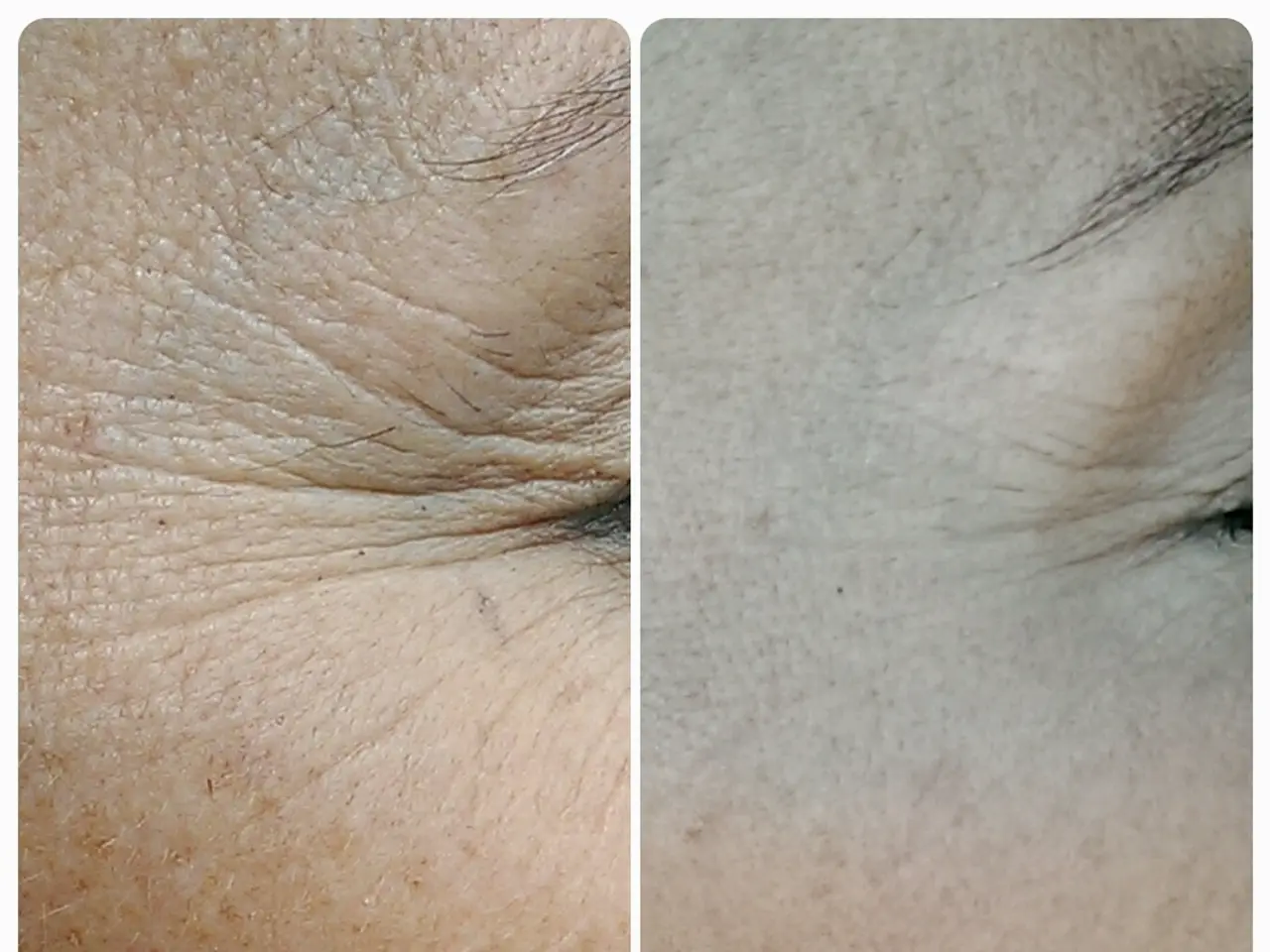Ceramides: The Essential Skin-Caring Compounds Explained
In the world of skincare, ceramides have emerged as a powerful and versatile ingredient, offering multiple significant benefits for maintaining a healthy skin barrier. These fats or lipids, which make up about 50% of the epidermis, play a crucial role in keeping the skin hydrated, protected, and resilient.
Ceramides form a protective seal in the skin, locking in moisture and preventing dryness. This action helps keep the skin soft, smooth, and hydrated, supporting overall skin resilience. By restoring and strengthening the skin's natural lipid barrier, ceramides protect against environmental damage and moisture loss, a crucial aspect for sensitive and reactive skin types.
One of the key advantages of ceramides is their ability to reduce sensitivity and irritation. They calm irritated skin by reinforcing the barrier, making skin less reactive to stressors such as harsh skincare actives. Studies show that ceramide-based products can significantly reduce skin sensitivity, making them ideal for sensitive skin or when introducing exfoliants or anti-aging treatments.
Ceramides also offer anti-aging support. By maintaining barrier integrity and preventing moisture loss, they help reduce the appearance of fine lines, wrinkles, and sagging. Research indicates that ceramide moisturizers improve skin elasticity and decrease wrinkle depth when used regularly, especially complementing anti-aging ingredients like retinoids and SPF.
In addition, ceramides enhance UV protection. They strengthen the skin barrier, making it more resistant to UV damage. When combined with sunscreen, ceramide-based moisturizers reduce UV-induced skin barrier damage better than sunscreen alone, providing enhanced protection against premature aging caused by sun exposure.
Ceramides are particularly beneficial for conditions like eczema and psoriasis, which involve ceramide deficiency. They help restore barrier function and reduce symptoms. As a person ages, their skin can't replenish its natural ceramides as quickly as it did when younger, so synthetic ceramides are added to moisturizers, serums, and other products.
Emollients, humectants, and occlusives work well with ceramides in skin care products, enhancing their ability to hydrate, protect, and soothe the skin. Dermatologist Amy Kassouf recommends checking ingredient labels when looking for products that include ceramides.
When using ceramide-rich products, it's best to apply them onto damp skin. Aim to apply your moisturizer within three minutes of showering or washing your face. For sensitive or aging skin, use richer ceramide creams at night to restore and strengthen the skin barrier. Pair ceramides with SPF in the morning for optimal barrier and UV protection.
In summary, ceramides are fundamental lipids that hydrate, protect, soothe, and repair the skin barrier while supporting anti-aging and sensitivity reduction. Their compatibility and versatility make them a cornerstone ingredient in effective skincare routines.
Ceramides, as integral components of skincare and health-and-wellness, offer multiple benefits by hydrating, protecting, and soothing the skin, especially for sensitive and reactive skin types. Their application in fitness-and-exercise routines, such as using them post-workout to aid in skin recovery, could potentially be explored in the realm of health science.
Incorporating skin-care products rich in ceramides can help address various skin concerns like fine lines, wrinkles, and sagging, making them valuable additions to a comprehensive fitness-and-exercise and health-and-wellness routine. Additionally, the compatibility of ceramides with emollients, humectants, and occlusives in health-and-wellness products enhances their role in maintaining skin health.




